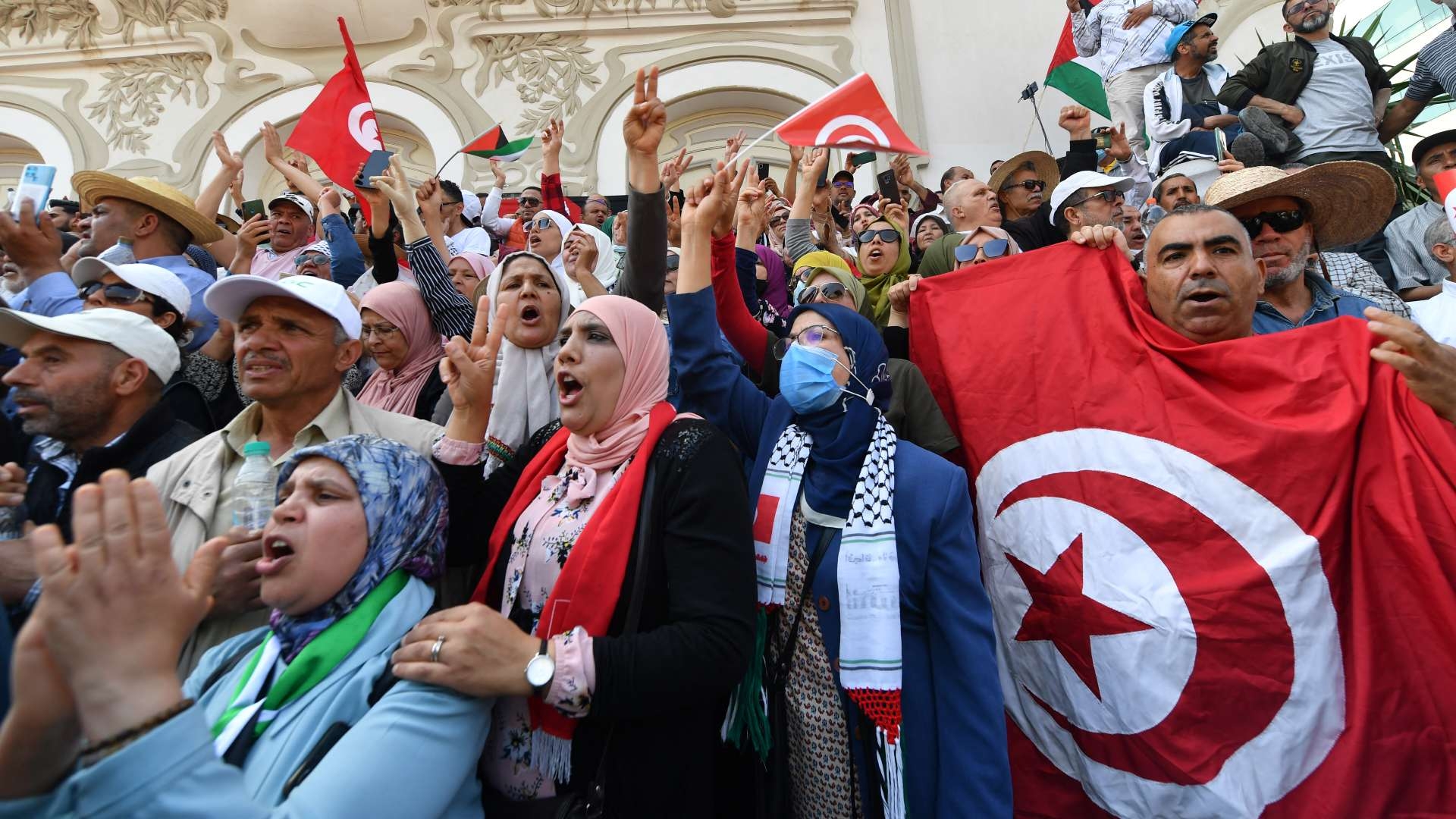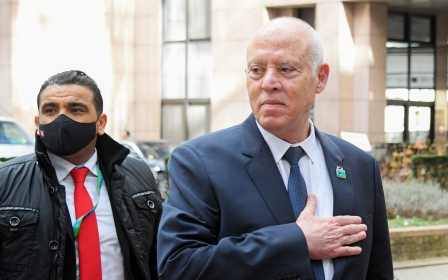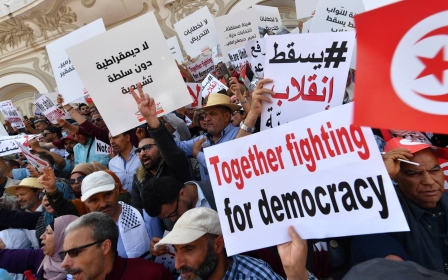US needs to support Tunisian-led opposition to Saied, says former ambassador

The United States needs to support opposition groups in Tunisia as President Kais Saied seeks to further consolidate power, the former US ambassador to the country has said.
"International actors can only be effective in a situation like this when they're supporting Tunisian initiatives," Jacob Walles said during a virtual webinar hosted by the Arab Center, a Washington-based think tank.
He added that unilateral action by the US would likely be seen by Tunisians as interference in the country, rather than support.
Walles, who served as ambassador to Tunisia from 2012 to 2015, said the Biden administration's approach to Tunisia had been ambiguous since Saied seized power in July 2021, with Washington focused primarily on countering China on the global stage, and more recently with the Russian invasion of Ukraine.
He also added that the Biden administration appeared to be grappling with the limits of its influence in the Middle East - as evidenced by many regional countries not joining the US in its rebuke of Russia at the United Nations earlier this year.
New MEE newsletter: Jerusalem Dispatch
Sign up to get the latest insights and analysis on Israel-Palestine, alongside Turkey Unpacked and other MEE newsletters
"I think the administration has correctly grasped the limits of its ability to successfully influence internal politics in Tunisia, or, for that matter, anywhere in the Middle East or North Africa," Walles said.
Walles, who currently is a non-resident senior fellow at the Carnegie Endowment for International Peace, also noted that in conversations with Biden administration officials, many believed that Saied continues to enjoy popular support throughout Tunisia.
Saied's dismissal of parliament and capture of the judiciary last year was originally met with sizable support, as the country's economy had continued to deteriorate since the Arab Spring protests.
However, nearly a year later, little of that support remains as Saied continues to make moves to consolidate power and root out opposition voices.
Saied, who says his actions were both legal and necessary to save Tunisia from an "imminent threat", is rewriting the democratic constitution introduced after the 2011 Arab Spring revolution, and says he will put it to a referendum in July.
While the president has focused on restructuring Tunisian politics, a looming economic crisis threatens to unravel his plans, as the government struggles to finance its 2022 deficit and repay debts.
Thousands of Tunisians are meanwhile taking to the streets across the country in protests to demand a return to democracy ahead of the July referendum.
US 'should not be Saied's accomplice'
During the webinar, Walles said that, while the US needs a unified opposition to support in Tunisia, Washington has failed to make it clear to Tunisians that it would support an alternative to Saied's rule.
"While the outside parties need the Tunisians to come up with an alternative, the Tunisians need the outside parties to indicate that they're prepared to support an alternative if it comes about," he said.
"That's one area where I would fault the United States and the international community for not signalling, either directly or indirectly, to Tunisian opposition that they're prepared to support an alternative to Kais Saied."
Experts have previously noted that the US could follow any one of a number of options in order to preserve democracy in Tunisia, including cutting US military assistance to the country, leveraging other aid, and also leveraging the stalled IMF talks with Tunisia, in which Saied is hoping to secure a loan that would alleviate the ongoing economic crisis.
Monica Marks, an assistant professor at the New York University in Abu Dhabi, said that, while a complete shutdown of aid to the country could be detrimental to ordinary Tunisians, Washington should make clear that it would not reward Saied's actions.
"We need to realise that even though Saied himself might not respond to carrots and sticks, a lot of people around him, those who are for him or against him, are watching - and signals matter," Marks said during Thursday's panel.
"Tunisians watch very, very closely the amount of aid on the table."
Since 2011, Tunisia has received nearly $685m in assistance from the US through the United States Agency for International Development.
In April, the US proposed the first partial aid suspension to Tunisia, with a $70m cut to military aid and a $40m reduction in economic aid.
Middle East Eye delivers independent and unrivalled coverage and analysis of the Middle East, North Africa and beyond. To learn more about republishing this content and the associated fees, please fill out this form. More about MEE can be found here.





